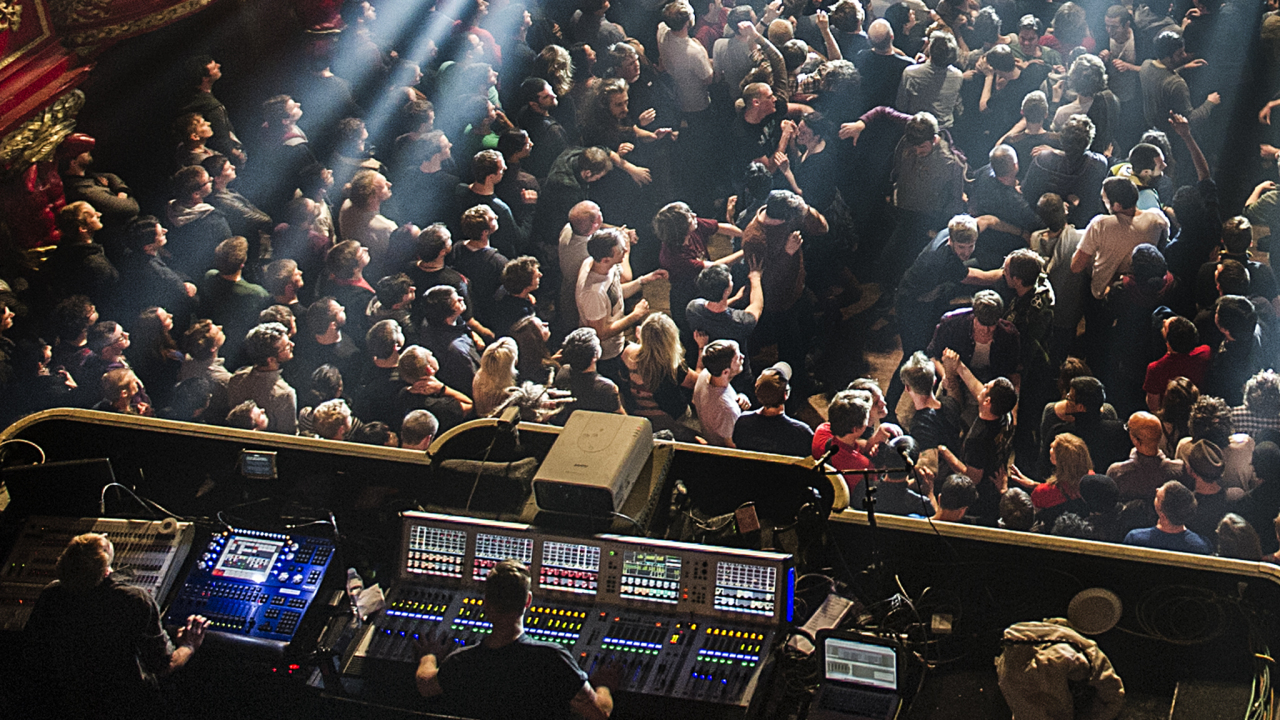And, having played here with black metal bands before, it makes as much sense that tonight’s a decidedly prog-flavoured occasion.
Barcelona’s Obsidian Kingdom couldn’t be accused of lacking passion. At points, members are kneeling at keyboards, crouched in front of speakers and basically losing their shit in supplication to the rich textures that morph into heavier then highly technical passages, albeit without any obvious reason why.
A far cry sartorially from their early, more dandyish days when they were named after their fringes, musically, Diagonal have weathered their line‑up changes well. The Brighton band lack some of the pastoral elements to their multi-hinged, jostling prog, but still sound like they’re barrelling down neon-lit, nocturnal highways while viewing the scene through compound eyes.
Esben And The Witch played this stage recently as part of the Beyond The Redshift festival, and they too have a sense of anxious momentum. Tonight its borne on folky undertones and an intrepid gothicism teetering on the edge of the unknown, petite frontwoman/bassist Rachel Davies holding back on the visual drama as the music rises to critical mass.
As is often the case with bands whose music offers a vast and unique set of co-ordinates to cross over into, there’s a palpable sense of anticipation before Sólstafir take the stage, the band’s latest, breakthrough album, Ótta, a rite of pilgrimage about to be made manifest. It helps, too, that the Icelanders look like genuine, if idiosyncratic, rock stars: elongated, skinny frames shrink-wrapped in weather-beaten leather like they’ve returned from a rarefied hinterland – an apt visual for the music.
The opening Köld’s ravaged and worn guitar tones accelerate into mournful expanses as if it’s just left the atmosphere to find all the planets gone as frontman Aðalbjörn contorts in kind. Lágnætti’s cinematic, string-laden lament and searchlight guitars, in true Sólstafir fashion, make hard-won journeys from aching poignancy to luminous acts of deliverance – a journey across landscapes both alien and yet meticulously familiar.
Their performance is a rapt, cathartic experience with flashes of humour, not least during Ótta’s banjo-orbiting, bottomlessly emotional well, Fjara’s consoling anthem or a closing Goddess Of The Ages, where Aðalbjörn leans down to link hands with one female fan, cementing an act of communion that resonates on the most magical of levels.

